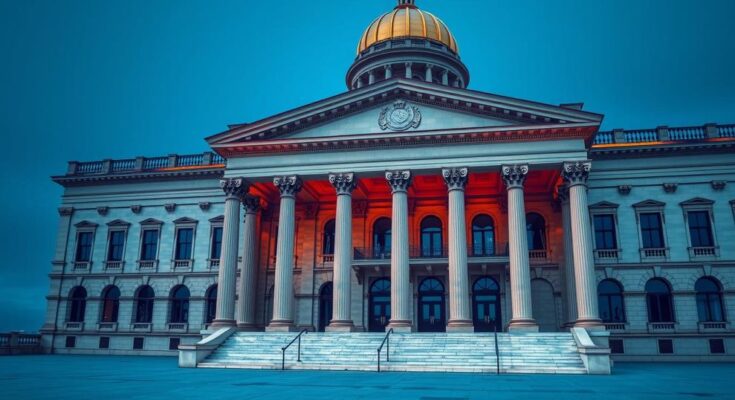Argentina’s lower house of Congress approved a decree facilitating negotiations with the IMF, a vital step for the government in addressing economic issues. This decision follows decades of fiscal mismanagement, with Argentina being the IMF’s largest borrower. While the move was positively received by markets, it has generated mixed reactions across the political spectrum and has led to social unrest amid austerity measures imposed by the Milei administration.
On Wednesday, Argentina’s lower house of Congress approved a decree allowing the government to initiate discussions with the International Monetary Fund (IMF). This approval marks a significant step forward for President Javier Milei’s administration in addressing the country’s fiscal challenges. The vote in the Chamber of Deputies was divided, with 129 members in favor, 108 against, and six abstentions.
Argentina’s financial situation is precarious, characterized by negative net foreign currency reserves following years of excessive spending and economic instability. The nation, which is the IMF’s largest borrower, currently has 22 ongoing loan programs and is still repaying a substantial $44 billion deal from 2022. The government contends that a new agreement is crucial for strengthening the central bank’s finances and gradually lifting capital controls that have hindered business activity since 2019.
Despite having limited support in Congress, Milei’s libertarian party has managed to advance its agenda by securing votes from conservative and moderate factions. Following the vote, Milei, alongside his sister and Economy Minister Luis Caputo, expressed their appreciation via social media. The approval was positively received by the market, with the local index IMV witnessing a 4.5% increase and over-the-counter bonds rising in after-hours trading.
Moderate Peronist opposition member Miguel Pichetto expressed cautious support for the measure, while acknowledging his concerns regarding the presidential decree’s lack of transparency and thorough explanation. He stated, “I support this, though with a critical eye… but I think we need to think primarily about Argentina.”
Milei, who disrupted the political landscape with his recent election victory, has focused on curbing inflation and addressing the fiscal deficit. Nonetheless, his austerity measures have led to increased poverty and social unrest, particularly among retirees. Anticipating heightened protests, a larger gathering was expected outside Congress following a recent violent demonstration by retirees against government policies.
In conclusion, the Argentine Congress’s approval of President Milei’s IMF loan plan represents a crucial advancement in efforts to stabilize the nation’s economy. With a divided legislature, the passage signifies an understanding of the pressing fiscal challenges facing Argentina. However, Milei’s stringent economic measures have spurred protests and increased poverty, indicating the complexities of implementing such policies while ensuring public support for their intended reforms.
Original Source: www.tradingview.com




